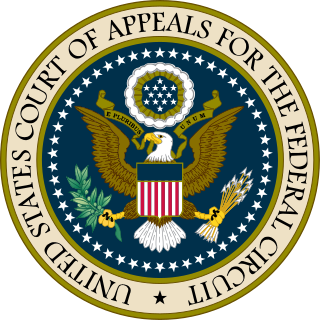
The Employee Retirement Income Security Act of 1974 (ERISA) is a federal United States tax and labor law that establishes minimum standards for pension plans in private industry. It contains rules on the federal income tax effects of transactions associated with employee benefit plans. ERISA was enacted to protect the interests of employee benefit plan participants and their beneficiaries by:

A fiduciary is a person who holds a legal or ethical relationship of trust with one or more other parties. Typically, a fiduciary prudently takes care of money or other assets for another person. One party, for example, a corporate trust company or the trust department of a bank, acts in a fiduciary capacity to another party, who, for example, has entrusted funds to the fiduciary for safekeeping or investment. Likewise, financial advisers, financial planners, and asset managers, including managers of pension plans, endowments, and other tax-exempt assets, are considered fiduciaries under applicable statutes and laws. In a fiduciary relationship, one person, in a position of vulnerability, justifiably vests confidence, good faith, reliance, and trust in another whose aid, advice, or protection is sought in some matter. In such a relation, good conscience requires the fiduciary to act at all times for the sole benefit and interest of the one who trusts.
A fiduciary is someone who has undertaken to act for and on behalf of another in a particular matter in circumstances which give rise to a relationship of trust and confidence.

United States labor law sets the rights and duties for employees, labor unions, and employers in the United States. Labor law's basic aim is to remedy the "inequality of bargaining power" between employees and employers, especially employers "organized in the corporate or other forms of ownership association". Over the 20th century, federal law created minimum social and economic rights, and encouraged state laws to go beyond the minimum to favor employees. The Fair Labor Standards Act of 1938 requires a federal minimum wage, currently $7.25 but higher in 29 states and D.C., and discourages working weeks over 40 hours through time-and-a-half overtime pay. There is no federal law, and few state laws, requiring paid holidays or paid family leave. The Family and Medical Leave Act of 1993 creates a limited right to 12 weeks of unpaid leave in larger employers. There is no automatic right to an occupational pension beyond federally guaranteed social security, but the Employee Retirement Income Security Act of 1974 requires standards of prudent management and good governance if employers agree to provide pensions, health plans or other benefits. The Occupational Safety and Health Act of 1970 requires employees have a safe system of work.

A financial adviser or financial advisor is a professional who provides financial services to clients based on their financial situation. In many countries, financial advisors must complete specific training and be registered with a regulatory body in order to provide advice.

Milan Dale Smith Jr. is an American attorney and jurist serving as a United States Circuit Judge of the United States Court of Appeals for the Ninth Circuit. Smith's brother, Gordon H. Smith, was a Republican U.S. Senator from 1997 to 2009.
Sereboff v. Mid Atlantic Medical Services, Inc., 547 U.S. 356 (2006), was a case decided by the Supreme Court of the United States involving the ability of an Employee Retirement Income Security Act (ERISA) plan fiduciary to recover medical costs from a beneficiary who has been reimbursed for injuries by a third party. The Court ruled unanimously that ERISA permitted the fiduciary to recover costs from the settlement proceeds a beneficiary received in a personal injury lawsuit.
Self-funded health care, also known as Administrative Services Only (ASO), is a self insurance arrangement in the United States whereby an employer provides health or disability benefits to employees using the company's own funds. This is different from fully insured plans where the employer contracts an insurance company to cover the employees and dependents.

Vivien v. WorldCom, Inc., No. 3:02-cv-01329 established a new legal theory permitting workers to recover for losses in their 401(k) retirement plans caused by investment in their employers' stock.
In the United States, the question whether any compensation plan is qualified or non-qualified is primarily a question of taxation under the Internal Revenue Code (IRC). Any business prefers to deduct its expenses from its income, which will reduce the income subject to taxation. Expenses which are deductible ("qualified") have satisfied tests required by the IRC. Expenses which do not satisfy those tests ("non-qualified") are not deductible; even though the business has incurred the expense, the amount of that expenditure remains as part of taxable income. In most situations, any business will attempt to satisfy the requirements so that its expenditures are deductible business expenses.
An Investment policy statement (IPS) is a document, generally between an investor and the assisting investment manager, recording the agreements the two parties come to with regards to issues relating to how the investor's money is to be managed. In other cases, an IPS may also be created by an investment committee to help establish and record its own policies in order to assist in future decision-making or to help maintain consistency of its policies by future committee members or to clarify expectations for prospective money managers who may be hired by the committee.

United States corporate law regulates the governance, finance and power of corporations in US law. Every state and territory has its own basic corporate code, while federal law creates minimum standards for trade in company shares and governance rights, found mostly in the Securities Act of 1933 and the Securities and Exchange Act of 1934, as amended by laws like the Sarbanes–Oxley Act of 2002 and the Dodd–Frank Wall Street Reform and Consumer Protection Act. The US Constitution was interpreted by the US Supreme Court to allow corporations to incorporate in the state of their choice, regardless of where their headquarters are. Over the 20th century, most major corporations incorporated under the Delaware General Corporation Law, which offered lower corporate taxes, fewer shareholder rights against directors, and developed a specialized court and legal profession. Nevada has done the same. Twenty-four states follow the Model Business Corporation Act, while New York and California are important due to their size.
Honest services fraud is a crime defined in 18 U.S.C. § 1346, added by the United States Congress in 1988, which states "For the purposes of this chapter, the term scheme or artifice to defraud includes a scheme or artifice to deprive another of the intangible right of honest services."
Jones v. Harris Associates L.P., 559 U.S. 335 (2010), is a case decided by the United States Supreme Court in which investors claimed that the fees they paid to an investment advisor were too steep, violating the Investment Company Act of 1940.
Cowan v Scargill [1985] Ch 270 is an English trusts law case, concerning the scope of discretion of trustees to make investments for the benefit of their members. It held that trustees cannot ignore the financial interests of the beneficiaries.

Huffman v. Office of Personnel Management, 263 F.3d 1341 is a decision by the United States Court of Appeals for the Federal Circuit addressing a two decade-old conflict between the United States Congress and the U.S. Court of Appeals for the Federal Circuit over the depth of whistleblower protection available to federal civilian employees covered by the Whistleblower Protection Act of 1989. The discourse revolves around the meaning of the word 'any'.
Waters v. Churchill, 511 U.S. 661 (1994), is a United States Supreme Court case concerning the First Amendment rights of public employees in the workplace. By a 7–2 margin the justices held that it was not necessary to determine what a nurse at a public hospital had actually said while criticizing a supervisor's staffing practices to coworkers, as long as the hospital had formed a reasonable belief as to the content of her remarks and reasonably believed that they could be disruptive to its operations. They vacated a Seventh Circuit Court of Appeals ruling in her favor, and ordered the case remanded to district court to determine instead if the nurse had been fired for the speech or other reasons, per the Court's ruling two decades prior in Mt. Healthy City School District Board of Education v. Doyle.

The Attorney General for Hong Kong v Reid (UKPC)[1993] UKPC 2 was a New Zealand-originated trust law case heard and decided by the Judicial Committee of the Privy Council, where it was held that bribe money accepted by a person in a position of trust, can be traced into any property bought and is held on constructive trust for the beneficiary.
Montanile v. Board of Trustees of the National Elevator Industry Health Benefit Plan, 577 U.S. ___ (2016), was a case in which the Supreme Court of the United States clarified subrogation procedures under the Employee Retirement Income Security Act ("ERISA"). The Court held that healthcare plan fiduciaries cannot demand reimbursement for medical benefits from a plan member's general assets if the beneficiary's general assets cannot be traced back to the original payment from the fiduciary. Although some scholars suggested that the court's ruling would have little impact, others suggested the case places "significant restrictions" on the rights of ERISA benefit plan providers.
Lockheed Corp. v. Spink, 517 U.S. 882 (1996), is a US labor law case, concerning occupational pensions.
Julia Penny Clark is an American attorney who has argued employee benefits law cases before the United States Supreme Court.









